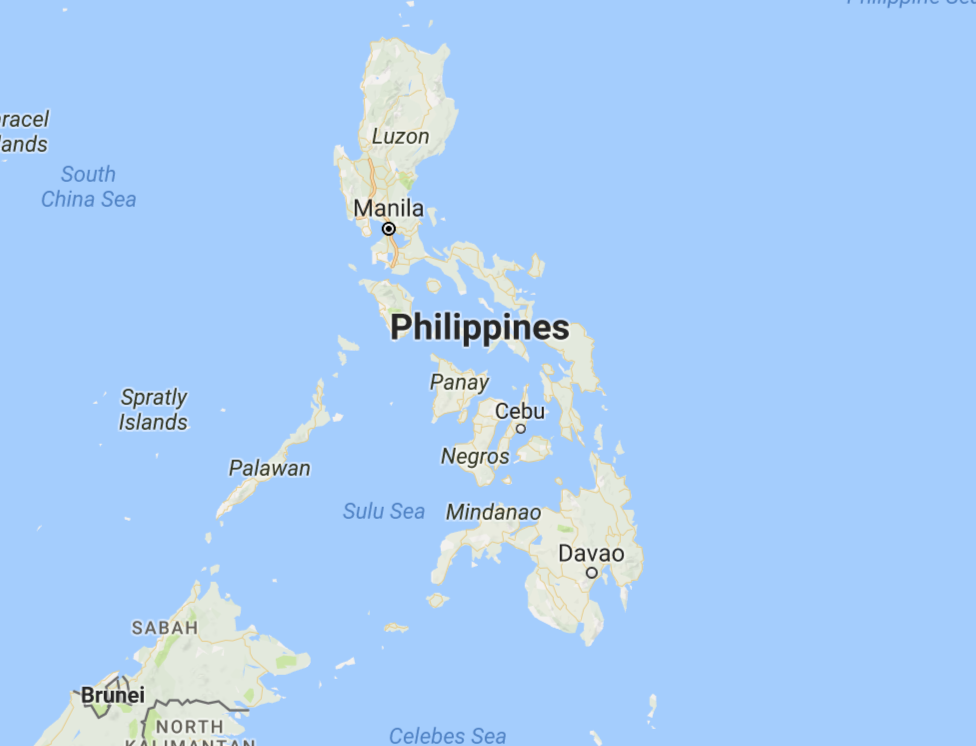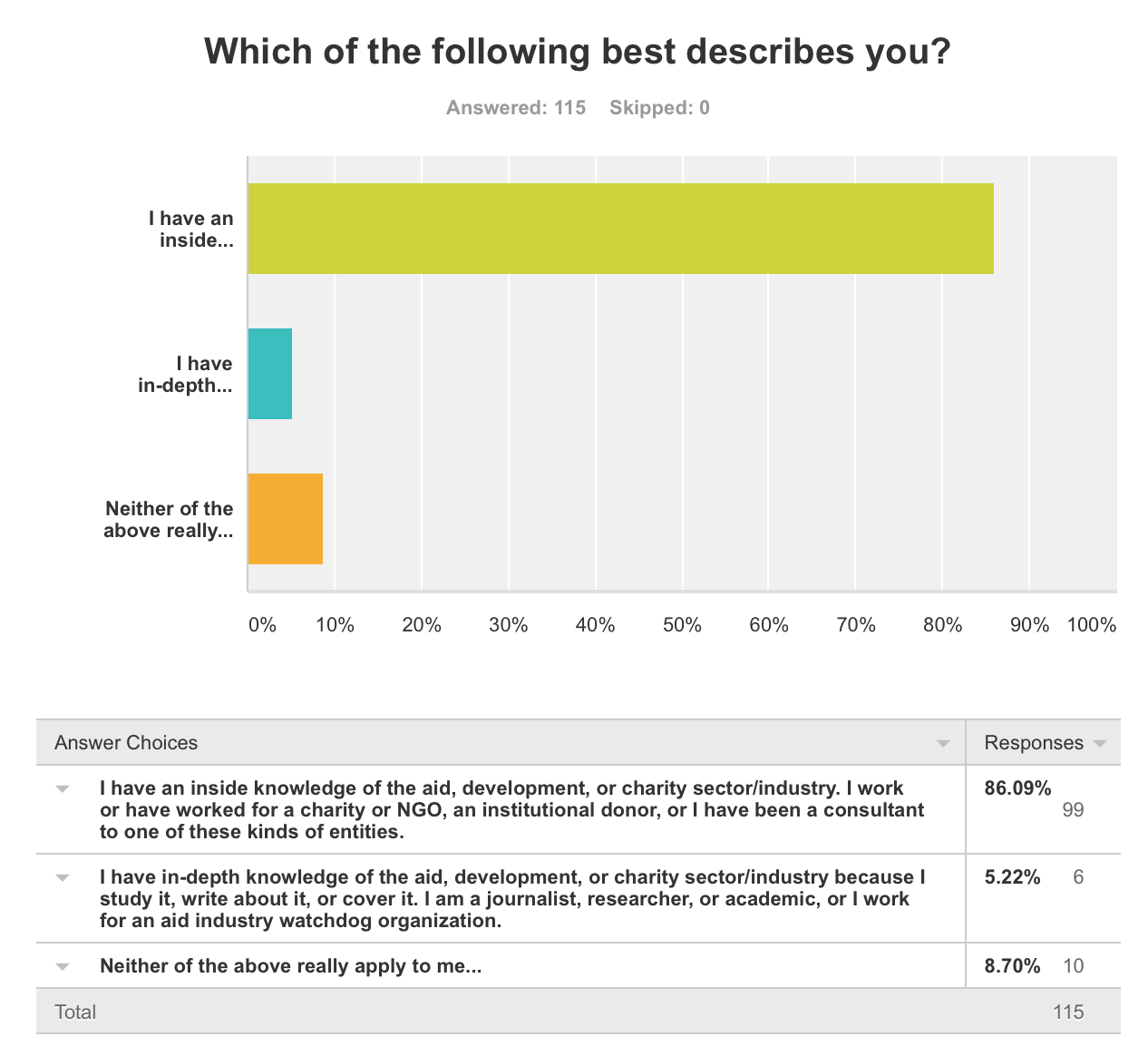Methodology notes regarding our online survey of Filipino aid and development workers
Background
Though in the coming days we’ll be posting more about the results I thought it might be useful for some to hear about the ‘why’ and ‘how’ of our survey work on Filipino aid workers.
Methodology notes
One of the weaknesses of the survey that J (Evil Genius) and I circulated in spring 2014 was that only 5% of the total sample (n = 1010) self-identified as ‘local’ aid workers. After publishing a post describing a small survey of Zambian aid and development workers in February I was contacted by Arbie Baguios. We worked together to construct a survey the intent of which was to generate meaningful -but mostly
suggestive and exploratory- data from Filipino aid and development workers. Included on the survey were, with some wording modifications, some of the same questions that were asked in 2014. We beta tested the survey with some of Argie’s Filipino colleagues and redrafted to the final version. After securing IRB permission from my university we began collecting data. The survey opened with a detailed explanation of the intended purpose of the survey and an informed consent statement. All respondents were voluntary.
Here is how we articulated the purpose of the survey to the respondents as part of the introduction:
Being a local aid worker is not the same as being an expat aid worker. Working in your home country, local aid workers face unique opportunities and challenges. The goal of this survey is to hear your voices, so that your stories can be told. Your participation will help us have a better understanding of how Filipino aid and development workers view their own jobs, their non-Filipino colleagues, and the wider aid and development sector.
Spreading the word using social media targeting Filipino aid and development workers (e.g., Facebook, emails, Twitter), the url for the survey was made available, with the survey remaining open for just over one month, late March to late April, 2017. Our’s was a convenience sample using an ‘open’ survey and ultimately yielded 115 responses. There were 28 questions total, 3 open-ended and 25 closed-ended with 8 of those allowing for open-ended comments. While only 31% completed the entire survey -the last three questions were open-ended- over 80% completed all of the closed ended questions. The average respondent spent just over 20 minutes working on the survey.
By comparison, the oft sited Carr, et al research focused on 6 nations and solicited responses from both expats and locals with their sample size ranging from 150 individuals (Solomon Islands) to 249 (China). All said and done, the results of our modest sample, I believe, merit note.
Some overall results describing the respondents
 Virtually all (99%) counted the Philippines as their home nation and the vast majority -91% reported having inside knowledge of the aid, development, or charity sector/industry. A fairly young sample, 60% have been in the sector 5 years or lass, the remaining 40% more than 5 years. Reflecting what appears to be the demographics of the target population, 63% of the respondents were female.
Virtually all (99%) counted the Philippines as their home nation and the vast majority -91% reported having inside knowledge of the aid, development, or charity sector/industry. A fairly young sample, 60% have been in the sector 5 years or lass, the remaining 40% more than 5 years. Reflecting what appears to be the demographics of the target population, 63% of the respondents were female.
A big majority -78%- worked for an international organization with its HQ based outside of the Philippines and only 5% worked for local organizations with its HQ based in the Philippines, working only in a specific barangay, municipality, city or region.
Most -60%- reported that their home organization did a mix of both relief and development, with 16% reporting just relief-type work and 14% doing development (community development, poverty elimination, etc.).
More to come very soon including views on LGTBQ aid workers, dealing with corruption, and views regarding the future of ‘localizing’ the aid sector in the Philippines.
You can contact me via email or Arbie on Twitter @arbiebaguios.
 Follow
Follow